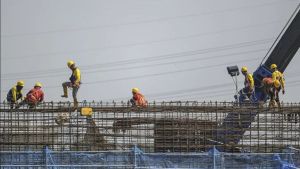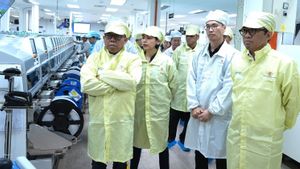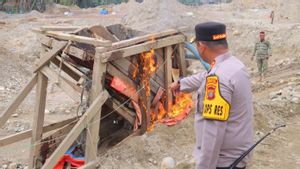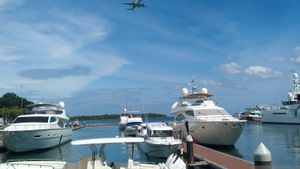YOGYAKARTA – The term feasibility study often appears in an important project.
In Indonesia, this term is very familiar to entrepreneurs or business people. But not everyone knows and is able to do it.
Then, what is a feasibility study?
Feasibility study is an analytical study conducted to measure as well as to assess the feasibility level of the supporting factors of a project.
In simple terms, a feasibility study is carried out to check whether a business or project is feasible when it is run or not.
The factors referred to in the feasibility study also vary, ranging from matters related to the economy, technical matters, legality, time, materials, and other things that will support the project implementation.
The term feasibility study is indeed less familiar to the wider community, but economic actors or business people, especially those involved in the project management industry, are very familiar with this term.
Benefits of Feasibility Study
Feasibility studies are not carried out without a purpose. There are various benefits obtained from this analysis activity, namely as follows.
- Knowing the benefits and business prospects of the project to be carried out.
- To help companies predict as well as assess the existence of the worst threats or risks during the project implementation process, both from internal and external factors.
- Knowing the financing and resources needed in project implementation.
- Knowing the prospects for project success.
- This study can also be a means of preventing business operations that lead to big losses for the company.
- Knowing the market potential.
- Becoming the forerunner of new business development.
Types of Feasibility Study in Project
In practice, the feasibility study has four types, each of which will focus on a different field.
The four types of feasibility studies are:
- Feasibility Study-Economics
The economic side is one of the focuses in the feasibility study activities. In its implementation, the team will conduct an analysis of costs or financial factors related to the feasibility of the project before the capital from investors begins to be spent.
Economic feasibility testing is also useful for comparing costs with benefits to the company or organization.
In this study, there are three important aspects to consider, namely initial investment, capital resources, and return on investment (ROI).
- Feasibility Study-Legal
As the name suggests, feasibility also considers aspects of legality or matters related to law.
The study will analyze the possibility of conflict between the project and the legal requirements at the project site, such as the zoning law, environmental law, and so on.
The legal feasibility study aims to avoid legal issues that conflict with the company's projects so as not to have an impact on losses.
- Feasibility Study-Technical
In project development, technical matters are very important to note. In the technical feasibility study, the things that will be analyzed are related to technical problems in project implementation so that there are no obstacles in the middle of the road.
The main assessment in technical feasibility is for example the required human resources, materials, technology, and so on.
- Feasibility Study-Operational
This operational feasibility study will focus on matters related to its operations such as the expertise and skills of human resources involved in the development, capacity planning, business objectives, and so on.
The indicators used in this study are the organizational structure of the business, the legal structure of the business, and the competence, skills, and experience of the project management team.
- Feasibility Study-Time
Time is also the object of a feasibility study analysis. In general, this study will measure how long it takes to build a project so that the project manager has a target time needed to work on the project.
Example of Feasibility Study in Indonesia
As mentioned earlier, feasibility study activities are carried out on projects that are considered important, one example being the Jakarta-Surabaya high-speed rail project. This train will connect the cities of Jakarta and Surabaya at a distance of 4 hours.
Quoted from VOI, the Minister of National Development Planning/Head of Bappenas Suharso Monoarfa explained that later the Jakarta-Surabaya high-speed rail project will also conduct a feasibility study. The activity will be carried out by the Korea National Railway (KNR).
In addition to what a feasibility study is, get other interesting information by visiting VOI.ID.
The English, Chinese, Japanese, Arabic, and French versions are automatically generated by the AI. So there may still be inaccuracies in translating, please always see Indonesian as our main language. (system supported by DigitalSiber.id)













